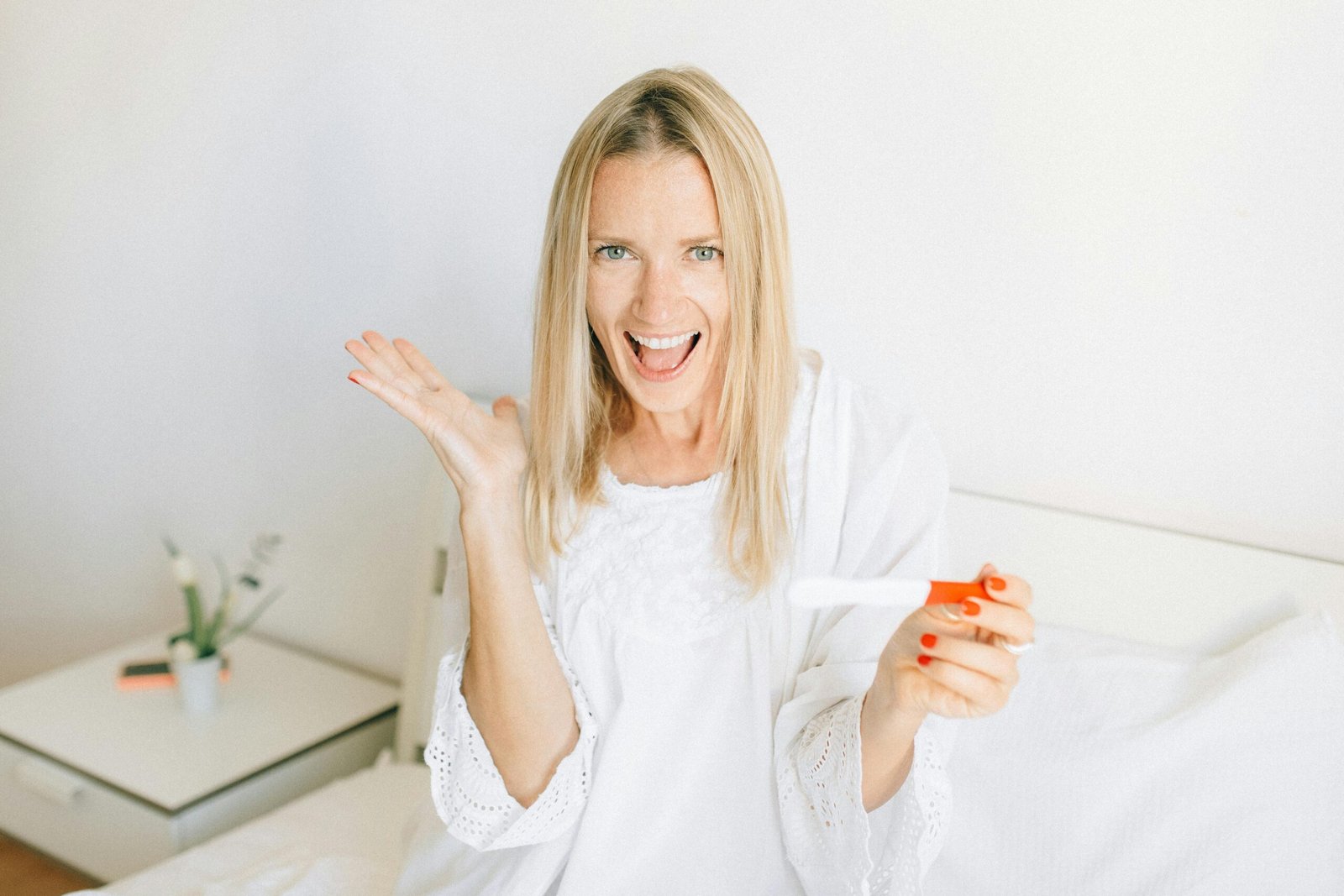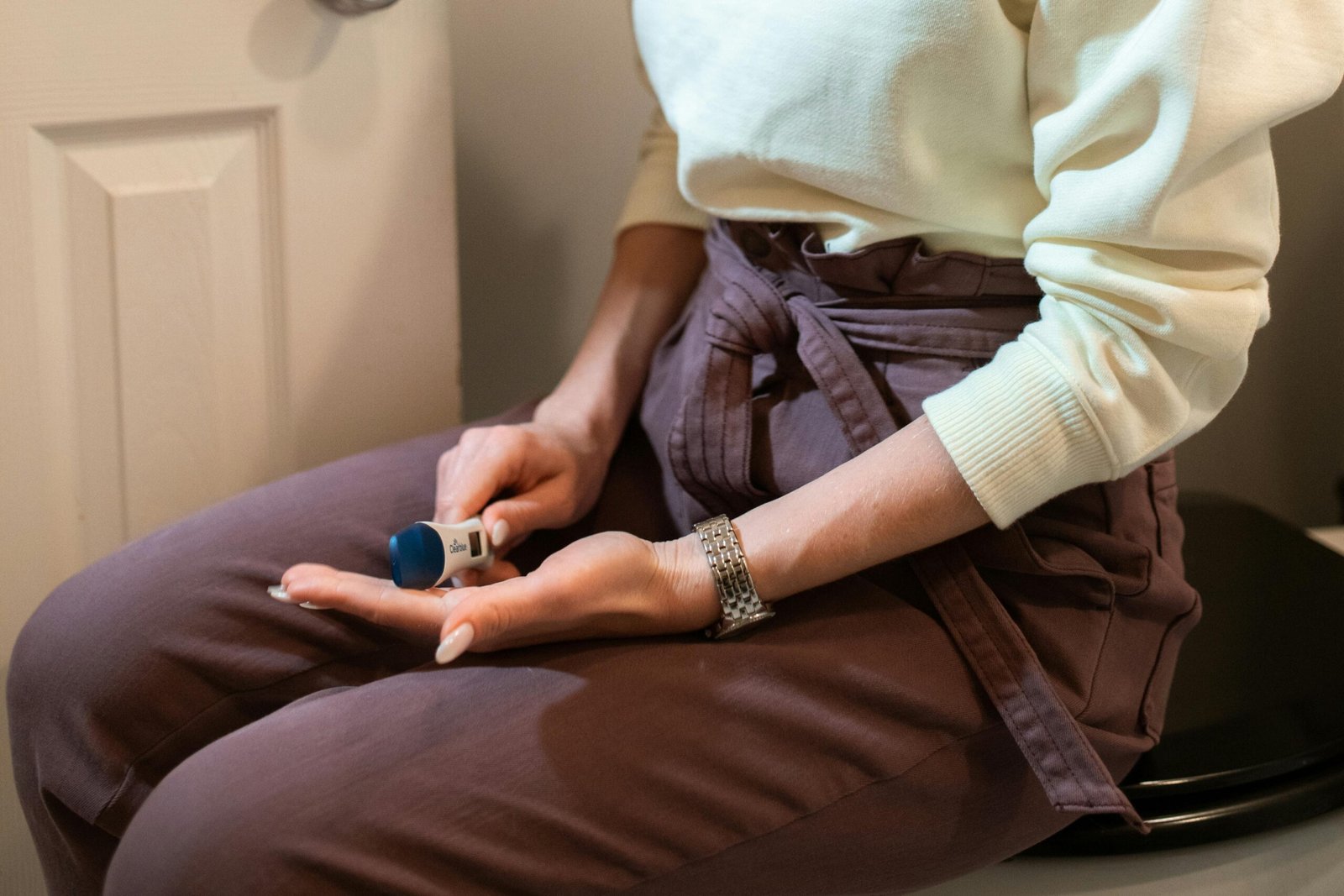Understanding your body’s rhythm is like unlocking a secret code to fertility, planning, and even dodging surprises. So, when does ovulation typically occur? Let’s dive into the magic (or mystery) of your cycle!
When Does Ovulation Typically Occur in a Menstrual Cycle?

For most people with a menstrual cycle, ovulation usually happens somewhere in the middle. If you have a textbook 28-day cycle, ovulation typically occurs around day 14. But, let’s be real—not everyone has a perfectly predictable cycle.
Your body decides when ovulation happens based on hormone levels, stress, lifestyle, and even how much sleep you’re getting. If your cycle is longer, say 35 days, ovulation might not roll around until day 21. Shorter cycles? Ovulation could happen closer to day 10.
When Does Ovulation Typically Occur for Different Cycle Lengths?
Not all cycles are created equal, and that’s okay! Here’s a general idea of when you might expect ovulation based on your cycle length:
- 21-day cycle: Ovulation around day 7
- 28-day cycle: Ovulation around day 14
- 35-day cycle: Ovulation around day 21
Your cycle isn’t set in stone, so tracking ovulation is a game-changer if you’re trying to conceive or avoid pregnancy.
How to Tell When Ovulation Typically Occurs
Your body gives little clues when ovulation is happening, and once you know what to look for, it’s like your body is speaking its own language.
Cervical Mucus Changes
Ever noticed things getting a little… slicker? Right before ovulation, cervical mucus becomes clear, stretchy, and egg-white-like. It’s a sign that your body is rolling out the red carpet for sperm.
Basal Body Temperature (BBT) Shift
Tracking your basal body temperature can help pinpoint when ovulation has happened. After ovulation, BBT slightly rises due to progesterone kicking in. It won’t help predict ovulation in real-time, but it’s great for tracking patterns over time.
Ovulation Pain
Some people feel a little twinge or cramp on one side of their lower abdomen when they ovulate. It’s called mittelschmerz, which sounds fancy but just means “middle pain” in German.
Using Ovulation Tests
If you want science on your side, ovulation predictor kits (OPKs) measure the luteinizing hormone (LH) surge that happens before ovulation. A positive test means ovulation is just around the corner!
What Can Affect When Ovulation Typically Occurs?
Ovulation isn’t always on a strict schedule. Several factors can mess with your cycle and change when ovulation happens.
- Stress: High stress levels can delay or even skip ovulation altogether.
- Illness: Being sick can throw off hormone levels, affecting your cycle.
- Weight Changes: Rapid weight gain or loss can impact ovulation timing.
- Exercise: Extreme workouts can lead to cycle irregularities.
- Hormonal Imbalances: Conditions like PCOS (polycystic ovary syndrome) can make ovulation unpredictable.
When Does Ovulation Typically Occur If You Have Irregular Cycles?
Irregular cycles make tracking ovulation a bit trickier. If your cycles vary wildly from month to month, ovulation can be unpredictable. The best way to get a clearer picture is to track multiple signs—cervical mucus, BBT, and OPKs.
If cycles are consistently irregular, a doctor can help identify underlying causes like hormonal imbalances, thyroid issues, or PCOS.
Can You Ovulate More Than Once?
You only ovulate once per cycle, but you can release multiple eggs during that ovulation window. That’s how fraternal twins happen! However, you can’t ovulate at different times in the same cycle. Once ovulation occurs, the hormonal shift prevents another one from happening until your next cycle.
When Does Ovulation Typically Occur After Stopping Birth Control?
If you’ve recently ditched birth control, your body might need some time to get back to its natural rhythm. Some people ovulate right away, while others take a few months to regulate. It depends on how your body responds to the shift in hormones.
The Best Time to Try for a Baby
If you’re hoping for a baby, timing is everything. The best chance of conception happens in the fertile window, which is the five days leading up to ovulation and the day of ovulation itself. Sperm can live inside the reproductive tract for up to five days, so having sex a few days before ovulation can increase your chances of conception.
If you’re trying to avoid pregnancy, tracking ovulation helps with natural family planning, but it’s not foolproof. Sperm are sneaky, and cycles can shift, making it tricky to predict ovulation perfectly.
Understanding When Ovulation Typically Occurs

Ovulation is the star of the menstrual cycle, dictating when pregnancy can happen and when your period will arrive. While the typical time for ovulation is around the middle of your cycle, variations are normal. Understanding your body’s signals—like cervical mucus changes, basal body temperature shifts, and ovulation pain—can help you track ovulation more accurately.
Whether you’re trying to conceive, avoid pregnancy, or just understand your cycle better, knowing when ovulation typically occurs gives you more control and insight into your reproductive health. So, grab a calendar (or an app) and start tracking—you might just crack the code to your body’s unique rhythm!
Frequently Asked Questions on Understanding When Ovulation Typically Occurs
1. When Does Ovulation Typically Occur?
Ovulation usually happens around the middle of your menstrual cycle, roughly 14 days before your next period starts. But—and this is a big but—not everyone has a textbook 28-day cycle. Some people ovulate earlier, some later, and that’s totally normal.
Your body has its own rhythm, and things like stress, illness, or even travel can shift the timing. If you’re trying to track ovulation, paying attention to signs like cervical mucus changes and slight temperature shifts can help you pinpoint it more accurately.
2. Can Ovulation Happen at Different Times Each Month?
Yes! While some people ovulate like clockwork, for others, it’s more of a moving target. Your body isn’t a machine, and things like stress, diet, sleep, and even how much you exercise can cause slight variations in when ovulation happens.
Hormonal fluctuations can also play a role, especially if you have conditions like PCOS. That’s why relying solely on calendar tracking might not always be the best approach—your body’s actual signals are a better clue.
3. How Long Does Ovulation Last?
Ovulation itself is pretty quick—just about 12 to 24 hours. That’s how long the egg is viable after it’s released. But here’s the good news: sperm can hang around for up to five days in the reproductive tract, waiting for the big moment. That means your “fertile window” is actually a few days long, not just the one day you ovulate.
So if you’re trying to conceive, you’ve got a little wiggle room for timing things right.
4. Can You Ovulate Without Knowing It?
Absolutely! Some people feel ovulation—maybe as a mild cramp or a twinge on one side of their lower belly (called mittelschmerz). Others don’t notice a thing.
There are also subtle changes happening in your body, like an increase in cervical mucus that gets stretchy and clear (kind of like egg whites) or a tiny rise in body temperature after ovulation. But if you’re not paying close attention, it’s easy to miss these signs.
5. What Are Some Uncommon Signs of Ovulation?
Most people know about cervical mucus and ovulation pain, but there are a few lesser-known signs, too. Some notice increased libido—your body’s way of nudging you toward reproduction. Others might experience heightened senses, like a stronger sense of smell.
Some even get a temporary mood boost, thanks to hormonal shifts. And if you’re really paying attention, you might notice a slight increase in saliva production. Your body is full of little clues!
6. Can You Ovulate More Than Once in a Cycle?
Sort of! You can release more than one egg within a 24-hour window, which is how fraternal twins happen. But you won’t ovulate again later in the same cycle. Once ovulation is over, hormonal shifts prevent another egg from being released.
However, you might still feel like you’re ovulating at different times due to hormonal fluctuations or mid-cycle spotting, which can sometimes be misleading.
7. Does Birth Control Affect Ovulation Timing After You Stop Taking It?
It can. Some people’s cycles bounce back immediately, while others take a few months to regulate. Hormonal birth control prevents ovulation while you’re using it, so when you stop, your body has to reestablish its natural rhythm. Some experience delayed ovulation for a cycle or two, while others might ovulate right away. It all depends on your body, your health, and sometimes just a little bit of luck.
